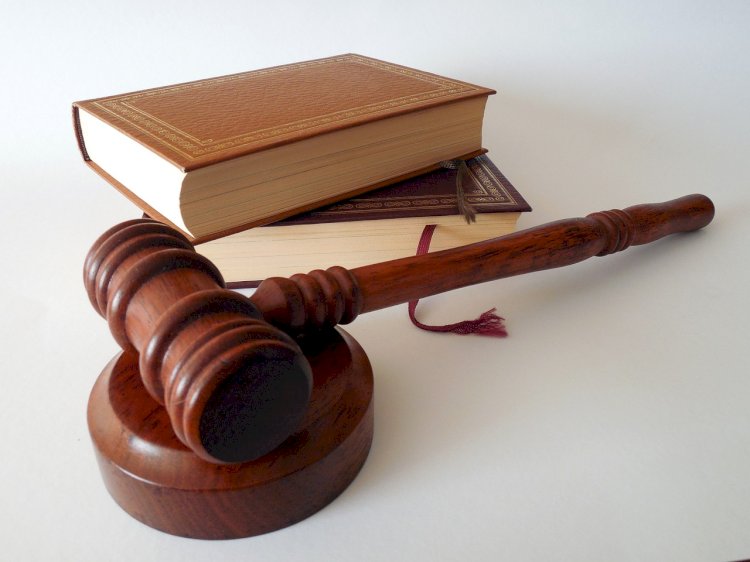Understanding the Australian Criminal Justice System: A Comprehensive Guide for Criminal Lawyers
Understanding the Australian criminal justice system is essential for criminal lawyers Sydney to effectively represent their clients and navigate the complexities of criminal law proceedings.

Understanding the Australian criminal justice system is essential for criminal lawyers Sydney to effectively represent their clients and navigate the complexities of criminal law proceedings. This comprehensive guide provides insights into the structure, processes, and key principles of the Australian criminal justice system:
1. Overview of the Australian Criminal Justice System:
The Australian criminal justice system is a complex framework of laws, institutions, and procedures designed to maintain public order, uphold the rule of law, and ensure justice for all individuals involved in criminal matters. It comprises multiple components, including law enforcement agencies, courts, legal professionals, correctional facilities, and support services.
2. Structure of the Criminal Justice System:
The Australian criminal justice system operates at both federal and state/territory levels. At the federal level, it includes agencies such as the Australian Federal Police (AFP) and the Australian Border Force (ABF), while at the state/territory level, it involves police forces, courts, and correctional services specific to each jurisdiction.
3. Key Institutions and Agencies:
-
Law Enforcement: Police forces are responsible for enforcing criminal laws, investigating alleged offenses, and maintaining public safety.
-
Courts: Courts adjudicate criminal cases, determine guilt or innocence, and impose sentences where applicable. This includes Magistrates Courts, District Courts, Supreme Courts, and specialized courts such as Drug Courts and Children's Courts.
-
Legal Profession: Criminal lawyers, including defense lawyers and prosecutors, represent clients in criminal proceedings and ensure the fair administration of justice.
-
Correctional Services: Correctional facilities and community corrections agencies manage offenders who have been sentenced to imprisonment or community-based orders.
4. Criminal Offenses and Prosecution Process:
Criminal offenses in Australia are categorized into various categories, including summary offenses, indictable offenses, and strict liability offenses. The prosecution process involves the following stages:
-
Investigation: Law enforcement agencies gather evidence and investigate alleged offenses.
-
Charging: Prosecutors decide whether to charge an individual based on the evidence gathered.
-
Court Proceedings: Criminal cases are heard in court, where evidence is presented, witnesses testify, and legal arguments are made by both prosecution and defense.
-
Verdict: The court determines guilt or innocence based on the evidence presented.
-
Sentencing: If convicted, the court imposes an appropriate sentence, which may include imprisonment, fines, community-based orders, or other penalties.
5. Legal Principles and Rights:
The Australian criminal justice system is founded on several fundamental legal principles and rights, including the presumption of innocence, the right to a fair trial, the right to legal representation, the privilege against self-incrimination, and the right to appeal.
6. Role of Criminal Lawyers:
Criminal lawyers Brisbane play a crucial role in the criminal justice system, representing clients accused of criminal offenses and advocating for their rights and interests throughout the legal process. Their responsibilities include:
-
Providing legal advice and representation to clients during police interviews, bail hearings, and court proceedings.
-
Investigating the facts of the case, gathering evidence, and preparing legal arguments and defenses.
-
Negotiating plea agreements with prosecutors and advocating for reduced charges or lenient sentencing outcomes.
-
Presenting the client's case effectively in court, cross-examining witnesses, and challenging the prosecution's evidence.
-
Advising clients on their legal rights, options, and potential consequences of criminal charges or convictions.
7. Challenges and Reform Efforts:
Despite its strengths, the Australian criminal justice system faces various challenges, including issues related to access to justice, overrepresentation of Indigenous Australians and marginalized communities, delays in court proceedings, and the effectiveness of rehabilitation and reintegration programs. Reform efforts are ongoing to address these challenges and improve the fairness, efficiency, and effectiveness of the criminal justice system.
8. Conclusion:
Understanding the Australian criminal justice system is essential for criminal lawyers to fulfill their roles effectively and ensure that clients receive fair and just treatment under the law. By navigating the legal process skillfully, advocating for clients' rights, and upholding principles of justice and fairness, criminal lawyers play a critical role in safeguarding the integrity of the criminal justice system and protecting the rights of individuals accused of criminal offenses.
Share
What's Your Reaction?
 Like
2
Like
2
 Dislike
0
Dislike
0
 Love
0
Love
0
 Funny
0
Funny
0
 Angry
0
Angry
0
 Sad
0
Sad
0
 Wow
0
Wow
0

















1
1